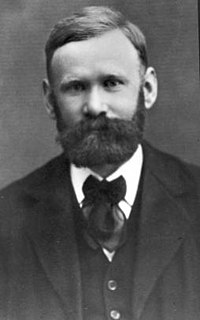
Back أغنر كراروب إرلانغ Arabic اجنر كراروب ارلانج ARZ Agner Krarup Erlang Catalan Agner Krarup Erlang Danish Agner Krarup Erlang German Agner Krarup Erlang Spanish Agner Krarup Erlang French אגנר קרארוף ארלנג HE Agner Krarup Erlang Italian アグナー・アーラン Japanese
Agner Krarup Erlang | |
|---|---|
 | |
| Born | 1 January 1878 Lønborg, Denmark |
| Died | 3 February 1929 (aged 51) Copenhagen, Denmark |
| Resting place | Sundby Kirkegård, København, Denmark[1] |
| Alma mater | University of Copenhagen |
| Occupation(s) | Mathematician, statistician, and engineer |
Agner Krarup Erlang (1 January 1878 – 3 February 1929) was a Danish mathematician, statistician and engineer, who invented the fields of traffic engineering[2][3] and queueing theory.[3]
Erlang's 1909 paper, and subsequent papers over the decades, are regarded as containing some of most important concepts and techniques for queueing theory.[4]
By the time of his relatively early death at the age of 51, Erlang had created the field of telephone networks analysis. His early work in scrutinizing the use of local, exchange and trunk telephone line usage in a small community to understand the theoretical requirements of an efficient network led to the creation of the Erlang formula, which became a foundational element of modern telecommunications network studies.
- ^ Cite error: The named reference
Hs2004was invoked but never defined (see the help page). - ^ Cite error: The named reference
Brockmeyer1948was invoked but never defined (see the help page). - ^ a b Thomopoulos, Nicholas T. (2012). Fundamentals of Queuing Systems: Statistical Methods for Analyzing Queuing Models. New York: Springer. p. 2. ISBN 978-1-4614-3713-0.
- ^ Bhat, U. Narayan (2015). An Introduction to Queueing Theory: Modeling and Analysis in Applications. Statistics for industry and technology. Boston, MA: Birkhauser. pp. 4–5. ISBN 978-0-8176-8421-1.